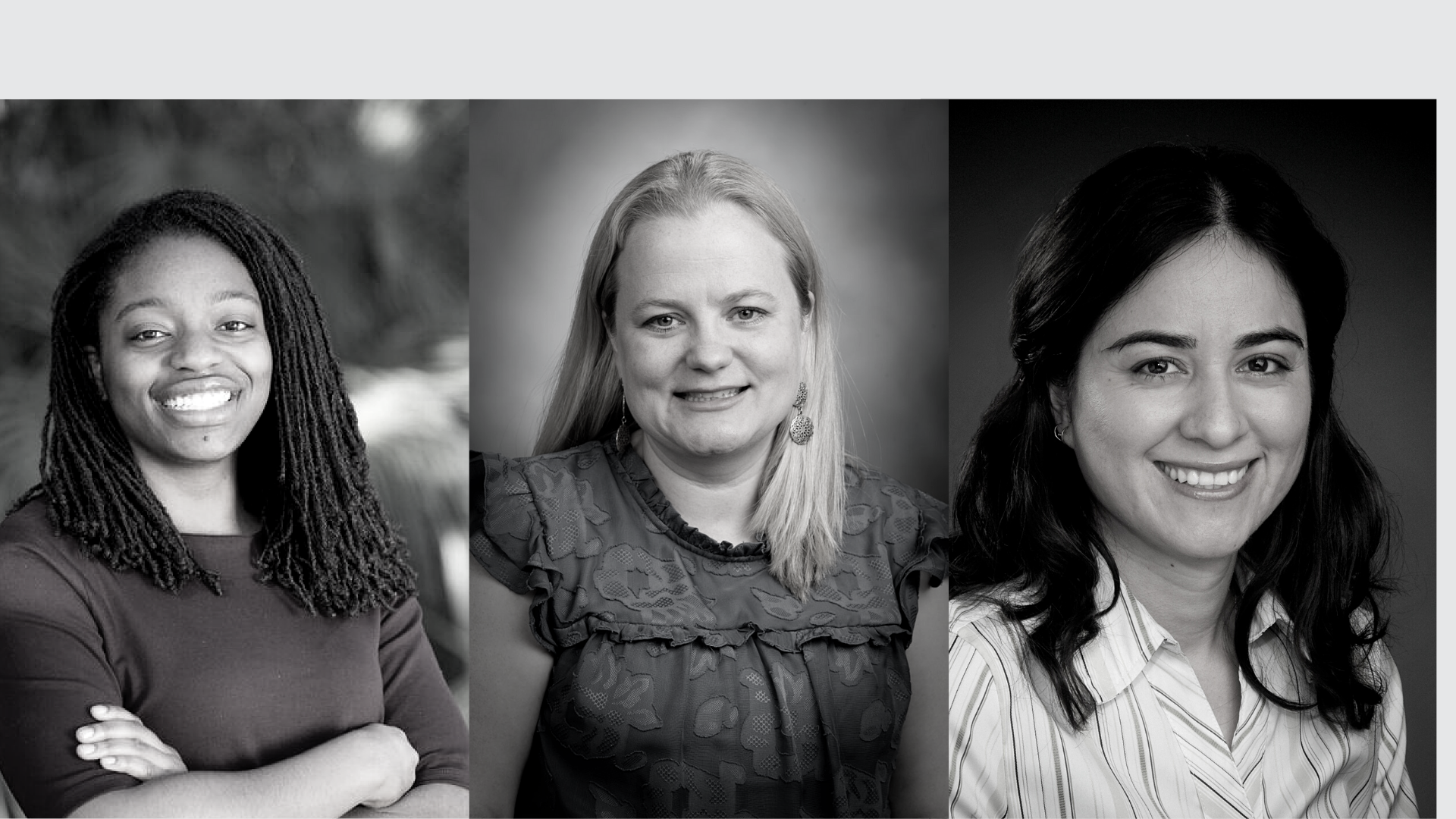Keypoint Newsletter: Welcome to the Fellows Class of 2023
By Heather Gerhart
Keystone Symposia is pleased to introduce the Keystone Symposia Fellows Class of 2023! This year we welcome ten early-career investigators who represent an exciting line-up of rising talent in biological and biomedical research. Keystone Symposia’s leadership and Fellows Alumni Network are deeply committed to supporting their careers and development as leaders in the biomedical research community. We look forward to welcoming this outstanding group of individuals at our Scientific Advisory Board meeting in January 2023 and guiding them towards career success over the next year, and beyond.
Established in 2009, the Keystone Symposia Fellows Program aims to provide early-stage independent researchers from underrepresented backgrounds with the skills, professional connections and visibility to support their success at this pivotal career stage. Fellows are paired with a distinguished member of our Scientific Advisory Board (SAB) for one-on-one mentorship and participate in monthly virtual “Fellows Friday” sessions tailored to address early-career challenges. Fellows are invited to participate in twice-yearly SAB meetings, where they engage with about 100 scientific thought-leaders to discuss the frontiers of biomedical research and curate scientific programing for our internationally acclaimed conference series.
We are incredibly grateful for the dedicated members of Keystone Symposia’s Scientific Advisory Board and the Keystone Fellows Community who have contributed their time and expertise to advising our Fellows. In particular, we wish to acknowledge the following individuals who served as mentors to the 2022 Fellows:Eric Baehrecke, Yasmine Belkaid, Kizzmekia Corbett, Tony Hunter, Laura Michael, Lee Niswander, Elizabeth Villa, Yibin Wang and Arturo Zychlinsky.
With the 2023 class, the Keystone Symposia Fellows Community now comprises 88 esteemed scientists, many of whom now hold leadership roles throughout academia, industry and government. Importantly, “alumni” Fellows remain connected to Keystone Symposia, as speakers and organizers of our conferences, as mentors to current Fellows, and as strategic advisors on our Board of Directors and Scientific Advisory Board, thereby further advancing our mission to promote inclusive excellence in the life sciences. View the full Fellows Directory here
You can read more about the Fellows Program in our Annual Update HERE!
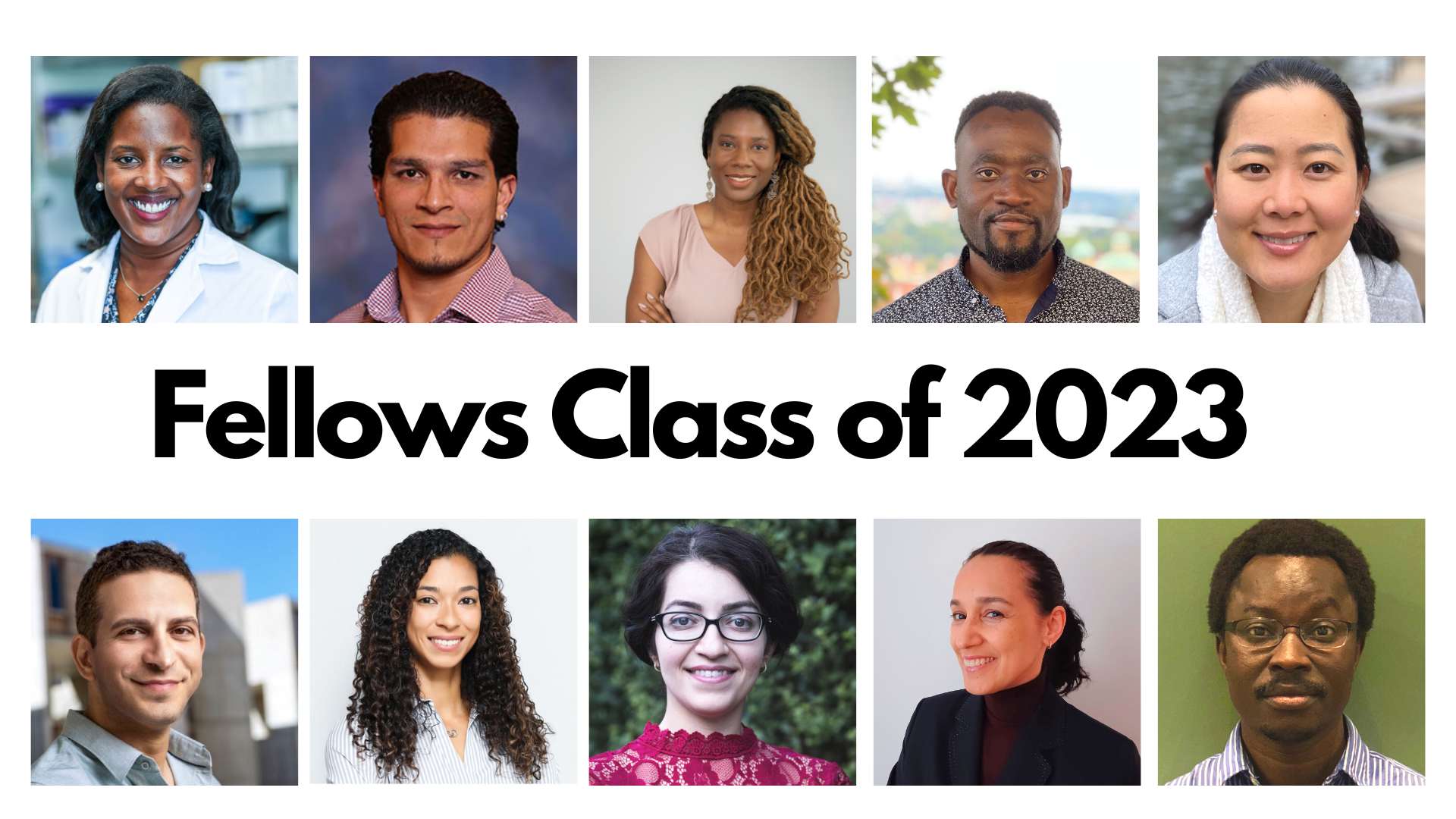
David Alagpulinsa, PhD
Instructor, Massachusetts General Hospital and Harvard Medical School
*Sponsored by Eli Lilly and Company
 Field of Study: Metabolic Diseases
Field of Study: Metabolic Diseases
Dr. David Alagpulinsa received a bachelor’s degree in Pharmacy from Kwame Nkrumah University of Science & Technology, Kumasi, Ghana, and a PhD in Interdisciplinary Biomedical Sciences from the University of Arkansas for Medical Sciences. He completed his postdoctoral training at the Massachusetts General Hospital (MGH) and Harvard Medical School in Boston, where he is currently a faculty Instructor in Medicine and Investigation. His research interests include genomic instability, hematopoiesis, autoimmunity, and cardiovascular disease.
Dr. Alagpulinsa was the MGH nominee for the American Diabetes Association Pathway to Stop Diabetes Initiator Award and was recently awarded the JDRF Diversifying Diabetes Research Talent in Academia Grant Award. His current research focuses on the role of bone marrow hematopoiesis in type 1 diabetes and cardiovascular disease. Dr. Alagpulinsa is a past recipient of the Keystone Symposia Global Health Travel Award.
Esperanza Arias-Perez, PharmD, PhD
Assistant Professor, Albert Einstein College of Medicine
*The Bei Zhang & Mark Erion Keystone Symposia Fellow
 Field of Study: Cell Biology/Autophagy, aging, cancer
Field of Study: Cell Biology/Autophagy, aging, cancer
Esperanza Arias, PharmD PhD, is an Assistant Professor at the Department of Medicine and the Department of Pathology at Albert Einstein College of Medicine, Bronx-NY. After completing her PhD at the Pharmacology Department of the School of Medicine in Autonoma University of Madrid (Spain), she engaged in a Master program in Clinical Research. She integrated her basic and clinical research skills at Ferring Pharmaceuticals, and later as senior clinical research associate at Pfizer (by Quintiles -IQVIA), involved in combinatorial clinical trials for the treatment of cancer. Dr. Arias moved to the US as a Fulbright postdoctoral fellow in the lab of Prof. A. M. Cuervo where she studied mammalian autophagy in the context of aging and age-related diseases. She was the recipient of the American Federation of Aging Research Fellowship, and the Beatrice and Roy Backus Foundation Research Fellowship.
After receiving the Pilot and Feasibility awards from the Marion Bessin Liver Research Center and the Einstein Institute for Aging Research, Dr. Arias was awarded her first R01 grant by the NIH. Her research group, now also part of the Montefiore Einstein Cancer Center, is investigating the connections between autophagy quality control and the metabolic regulation of cancer (as an age-related disease) during initiation, as well as maintenance stages. In particular, the Arias lab is deciphering the contribution of chaperone-mediated autophagy malfunction in the context of metabolic disorders and hepatic damage progression to liver cancer; with special interest in the molecular basis underlying clinical disparities.
Samira Asgari, PhD
Assistant Professor, Icahn school of medicine at Mount Sinai
*Sponsored by Geoffrey S. Ginsburg, M.D., Ph.D., Keystone Symposia Board of Directors
 Field of Study: Human Genomics
Field of Study: Human Genomics
Dr. Samira Asgari is an assistant professor of Genetics and Genomic Sciences at Icahn School of Medicine at Mount Sinai. She completed her M.Sc. studies at the University of Tehran, Iran (Hossein Baharvand’s lab), then moved to Lausanne, Switzerland to pursue a Ph.D. degree in human genomics of infectious disease at EPFL (Jacques Fellay’s lab) in 2012. In 2017, Dr. Asgari moved to Boston for her postdoctoral training in human statistical and population genomics at the Brigham and Women’s Hospital (Soumya Raychaudhuri’s lab).
Dr. Asgari started her research group at Mount Sinai in 2022. Her group focuses on understanding the human genetic basis of infection and immunity. The group’s research questions include: What are the human genetic variants underlying susceptibility and resistance to specific pathogens? What are the molecular mechanisms connecting these variants to cellular functions and immune responses? and How do differences in population history and demography play into susceptibility and resistance to specific pathogens? Dr. Asgari’s lab uses a combination of statistical, functional, and population genomics methods to answer these questions. In her spare time, Dr. Asgari loves to read, hike, and discover new cheeses to try!
Adebowale (Wale) Bamidele, PhD
Assistant Professor of Medicine, Mayo Clinic College of Medicine & Science
 Field of Study: Immunology, Gastroenterology
Field of Study: Immunology, Gastroenterology
Dr. Adebowale (Wale) Bamidele received his bachelor’s degree in Chemistry from Brooklyn College of the City University of New York, then obtained his Ph.D. in Molecular Pharmacology and Experimental Therapeutics from Mayo Clinic. He is currently an Assistant Professor of Medicine in the Division of Gastroenterology and Hepatology at Mayo Clinic, Rochester, Minnesota. His research laboratory aims to understand the metabolic mechanisms that reinvigorate the pathogenic functions of the adaptive immune system during immune-mediated disorders, including inflammatory bowel disease (Crohn’s disease and ulcerative colitis). Specifically, he is actively investigating how various CD4 T lymphocytes develop and perpetuate chronic inflammation through cellular metabolism and cell-to-cell communication, with the therapeutic goal of restoring intestinal homeostatic balance
Uri Manor, PhD
Assistant Research Professor, Salk Institute for Biological Studies
*Sponsored by Eli Lilly and Company
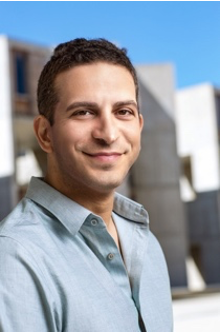 Field of Study: Cell Biology/Neurodegeneration & Hearing Loss
Field of Study: Cell Biology/Neurodegeneration & Hearing Loss
As Director of the Advanced Biophotonics Core and Assistant Research Professor at the Salk Institute, Dr. Uri Manor develops new methods and tools for studying cellular dynamics with nanometer precision (a sheet of paper is about 100,000 nanometers thick). This includes artificial-intelligence-based computational approaches (deep learning) that integrate data from microscopes to increase image resolution, sensitivity and collection speed beyond what’s possible with any other existing method. Manor also develops genetic tools that facilitate the monitoring and manipulation of cellular structures in models of neurological disorders, such as Alzheimer’s and Charcot-Marie-Tooth disease. Using these advanced technologies, Manor can capture live videos of microscopic structures, such as neuronal synapses, mitochondria, and the internal framework of the cell called the actin cytoskeleton, with unprecedented detail. This information helps researchers connect anatomy to function. Manor investigates a number of cellular structures involved in processes that, if disrupted, lead to disorders including neurodegeneration, hearing loss, cancer and metabolic disorders. His research advances scientists’ understanding of these cellular processes and ultimately helps discover and create new therapies for treating these conditions.
Prior to joining Salk, Manor did his PhD thesis research work with Bechara Kachar (NIH), and his postdoctoral training with Jennifer Lippincott-Schwartz (NIH and Janelia Farms) using advanced quantitative imaging approaches, such as superresolution and live cell imaging, automated analysis and segmentation of microscopy data, and computational modeling of biophysical and biochemical dynamics in the cell.
Sonya Neal, PhD
Assistant Professor, University of California San Diego
*Sponsored by Stephanie Watts, Ph.D., Keystone Symposia Scientific Advisory Board
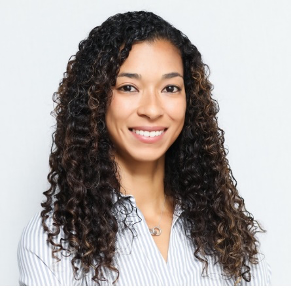 Field of Study: Cell Biology/Biochemistry
Field of Study: Cell Biology/Biochemistry
Dr. Sonya Neal received her Ph.D. from U.C. Los Angeles in 2013 after working in the laboratory of Dr. Carla Koehler. She then carried out her postdoctoral studies at U.C. San Diego in the laboratory of Dr. Randolph Hampton. She was the recipient of the Burroughs Wellcome Postdoctoral Diversity Enrichment Award and Ruth L. Kirschstein NRSA Postdoctoral Fellowship. Dr. Neal joined the faculty in 2018 at the Department of Cell and Developmental Biology at University of California where her lab studies the role of the rhomboid superfamily in membrane-related functions and homeostasis. She is the recipient of the NIH MIRA, NSF CAREER, Pew, and the Chan Zuckerberg Initiative Science Diversity Leadership Award. She is also a champion for diversity where she co-founded the Biology Undergraduate & Master’s Mentorship (BUMMP) program, which serves 500 URM and 1st generation students. Moreover, she teaches a new DEI graduate course, “Social Issues in Biology.” For these efforts, she has received the campus-wide Inclusive Excellence and the Faculty Mentorship award.
Henry Ruiz, PhD, MPhil
Research Assistant Professor, NYU Langone Health
*Sponsored by the Endocrine Society’s Future Leaders Advancing Research in Endocrinology (FLARE) program
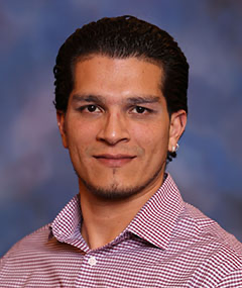 Field of Study: Neuroendocrinology/Obesity & Metabolism
Field of Study: Neuroendocrinology/Obesity & Metabolism
After attaining his Masters of Philosophy degree in Behavioral Neuroscience and Doctoral degree in Neuropsychology from the Graduate Center of the City University of New York, Dr. Henry H. Ruiz’s postdoctoral research at Mount Sinai focused on unveiling a pathophysiological link between Alzheimer’s disease and metabolic dysfunction. During his postdoctoral tenure in the Diabetes Research Program at the New York University (NYU) and as part of the work proposed in his NIDDK K01 career development award, Dr. Ruiz has been studying the role of advanced glycation endproducts (AGEs) and their receptor (RAGE) in the pathogenesis of obesity and insulin resistance. Dr. Ruiz is currently an Assistant Research Professor in the Department of Medicine at NYU with the immediate goal of obtaining a tenure-track faculty position at an institution where he can continue his current work and in the long term, develop a research program focused on understanding central nervous system regulation of glucose and lipid metabolism and how these processes are dysregulated by AGEs.
Melody Smith, MD, MS
Assistant Professor of Medicine, Stanford University
.png?width=240&height=300&name=MSmith_Stanford_2022%20(2).png) Field of Study: Cancer/Immunology
Field of Study: Cancer/Immunology
Dr. Melody Smith received her MD with Distinction in Research from the University of Texas Southwestern Medical School in Dallas. She also completed an internship and residency in Internal Medicine at the University Texas Southwestern. She subsequently moved to Memorial Sloan Kettering Cancer Center (MSK) to complete her fellowship in Hematology & Medical Oncology. She joined the faculty at MSK in 2015 as an Instructor of Medicine on the Adult Bone Marrow Transplant Service, and she was promoted to Assistant Member Level 1 in 2017.
During her time as junior faculty at MSK, she obtained a Master of Science from Weill Cornell Graduate School of Medical Sciences in Clinical & Translational Investigation. She performed her post-doctoral research in the lab of Marcel van den Brink, MD, PhD and she was co-mentored by Michel Sadelain, MD, PhD.
In September 2021, she joined the faculty at Stanford University as an Assistant Professor in the Division of Blood and Marrow Transplantation and Cellular Therapy in the Department of Medicine to establish her independent lab. As a physician-scientist, her independent research in the lab focuses on strategies to develop cellular immunotherapy from allogeneic as opposed to autologous sources. She also investigates the regulatory mechanisms for the impact of the intestinal microbiome on chimeric antigen receptor (CAR) T cell outcomes.
Livia Yamashiro, PhD
Scientist, Arcus Biosciences
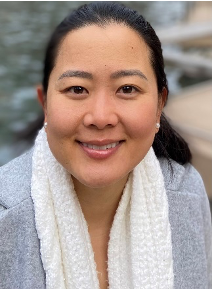 Field of Study: Cancer Immunology
Field of Study: Cancer Immunology
Dr. Livia Yamashiro is a Scientist at Arcus Biosciences where she applies fundamental immunology to the development of drugs for cancer immunotherapies. Her focus is to phenotype immune responses and validate the application of promising candidates in clinical trials. She also investigates compounds with cancer cell-intrinsic activity, aiming to find molecules with selective activity towards tumoral cells avoiding unspecific effects. Livia has a background in immunology related to host innate immune system-pathogen interactions having studied the Stimulator of Interferon Genes (STING) pathway and the downstream effects on infectious diseases during her postdoctoral fellowship at UC Berkeley. Additionally, Livia has been involved in the screening of compounds with antiviral activity against SARS-CoV-2 and successfully established animal models to investigate top hit candidates.
Zapporah Young, PhD
Scientist II, Casma Therapeutics
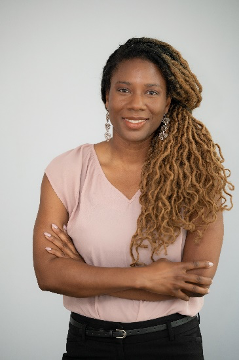 Field of Study: Cell Biology/Medicinal Chemistry
Field of Study: Cell Biology/Medicinal Chemistry
Dr. Zapporah Young graduated from Duke University with a bachelor’s degree in chemistry. Prior to attending graduate school, she worked as a radiochemist synthesizing diagnostic and novel PET ligand radiotracer compounds for imaging pediatric cancer at St Jude Children’s Research Hospital in Memphis, TN. Following her radiochemistry experience, she completed her graduate student work at the University of Michigan where she used an array of biochemical and cellular assays to determine the mechanism of action of small molecules targeting the molecular chaperone Hsp70. Dr. Young completed her postdoctoral studies at AstraZeneca in the neurobiology department. Using her experience in chemical biology, she validated novel protein targets for axon degeneration through identification of small molecule modulators of protein structure and conformation. She continued to gain expertise in target validation as a Scientist at Yumanity Therapeutics where she developed and validated methods for evaluating small molecules in ALS disease models. She is currently a Senior Scientist at Casma Therapeutics where she collaborates with teams of chemists and biologists to lead drug discovery programs across multiple disease areas. In her free time Dr. Young enjoys playing soccer and exploring her creativity through crafting.
About the Author

Heather Gerhart
Heather Gerhart earned her MA in Cultural Sustainability from Goucher College, and brings an understanding of how social science principles can be brought to bear in support of inclusive program design and development. She has worked in support of Keystone Symposia’s Diversity, Equity and Inclusion leadership since the inception of the organization’s Diversity in Life Sciences Program in 2007. Previously Keystone Symposia’s Sr. Grant Coordinator and Program Analyst, she helped to found, develop, and acquire funding for the Program in response to biomedical workforce development priorities at the National Institutes of Health and the National Science Foundation.
Return to more articles from the Keypoint Newsletter
Related news
Celebrating Women's History Month with Keystone Symposia Fellows
For Women's History Month, we are highlighting the many inspiring women who are making history in...
Celebrating Black History & Juneteenth at Keystone Symposia
In honor of Black History and Juneteenth, we celebrate 36 inspiring Keystone Symposia Fellows who...
Partnering with Eli Lilly to Empower Diversity in the Biomedical Workforce
Keystone Symposia was founded on the idea of bringing academic and industry scientists together to...




